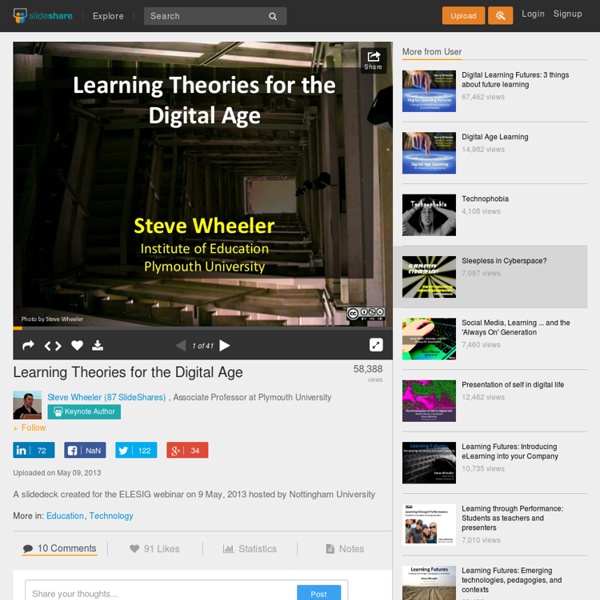



Teaching Skills: What 21st Century Educators Need To Learn To Survive What are the traits that would make for the ideal 21st teacher? What does an educational professional need to be or do to tune in and synchronize with the new realities silently emerging inside schools and educational environments? Photo credit: Lisa F. The profound, deep shifts we are starting to witness across all of the established educational institutions, pivot around four key components: 1) Learners driving. These new "teachers" think, act and perform their multiple roles of guides, facilitators and learning advisers with a spirit and attitude that is radically different from the one that is typical of the traditional, classic educator. Andrew Churches challenges the status quo and paints a detailed profile of what this new breed of professors is going to look like. Eight Habits of Highly Effective 21st Century Teachers By Andrew Churches What are the characteristics we would expect to see in a successful 21st century educator? 1. 2. 3. Educators too, must be collaborators: 4. 5. 6. 7.
Peer Learning Handbook | Peeragogy.org Week 1 - What Is Connectivism? ~ CCK11 You are not logged in. [] [] [Outline] [Week 2] Dates: January 17 - 24, 2011 Overview At its heart, connectivism is the thesis that knowledge is distributed across a network of connections, and therefore that learning consists of the ability to construct and traverse those networks. Readings SeminarsSeminars Wednesday: Live Session: Location: Elluminate (Click Here to Join). Activities A few simple activities for this week: 1. 2. 3. It is especially important to use this tag in del.icio.us and in Twitter. If you are using a blog, Flickr, or a discussion group, share the RSS feed.